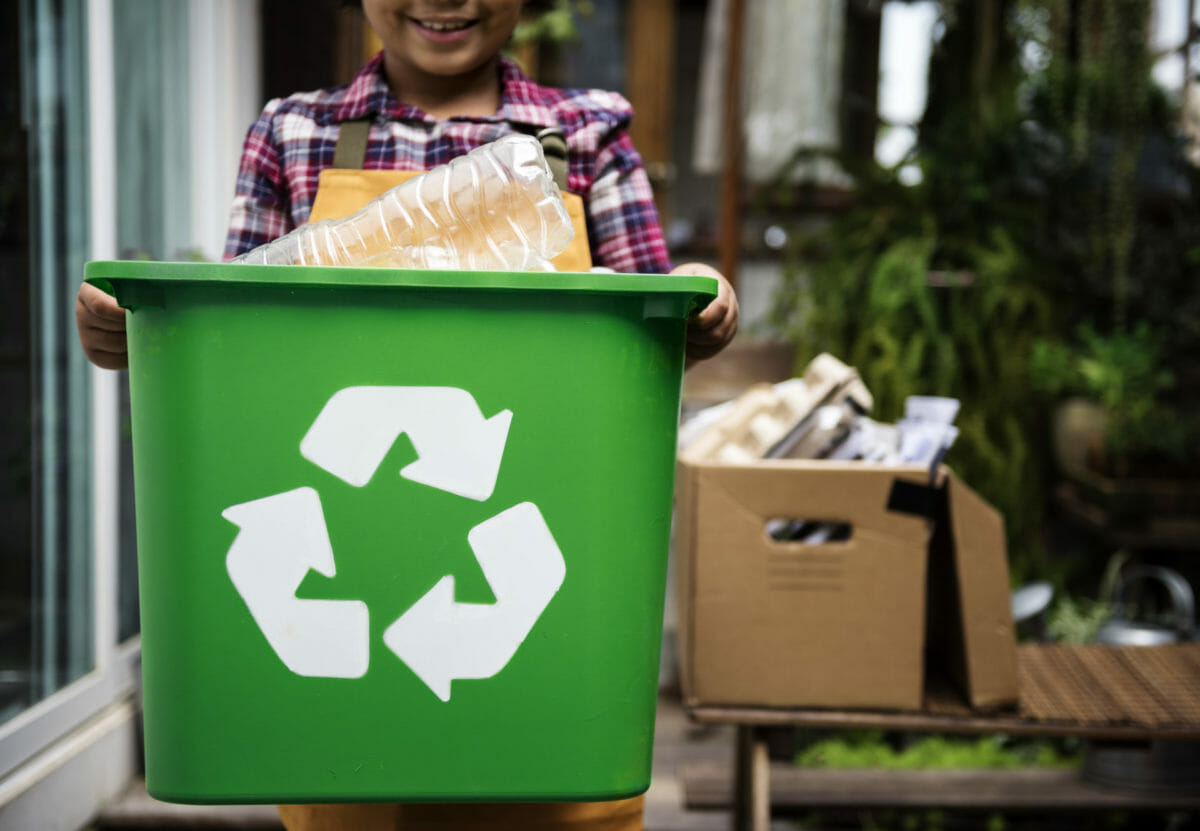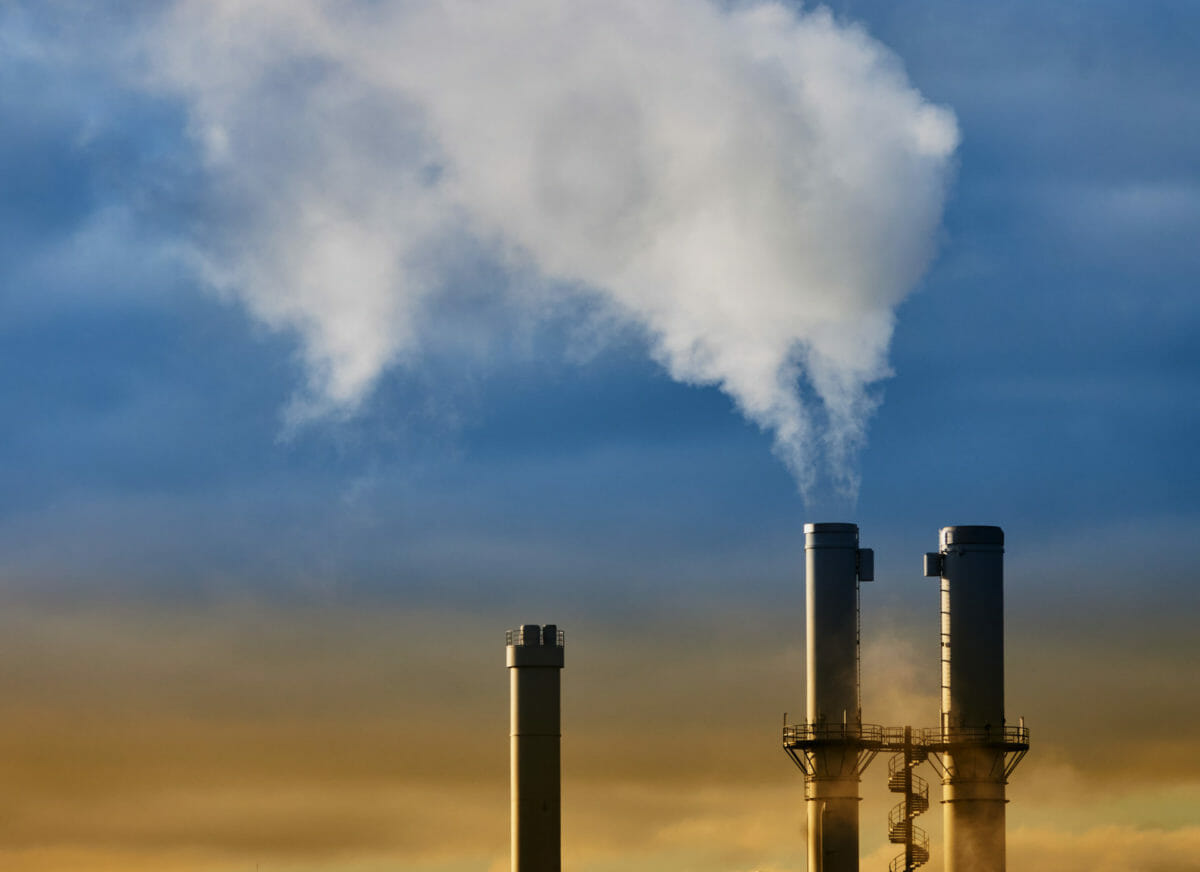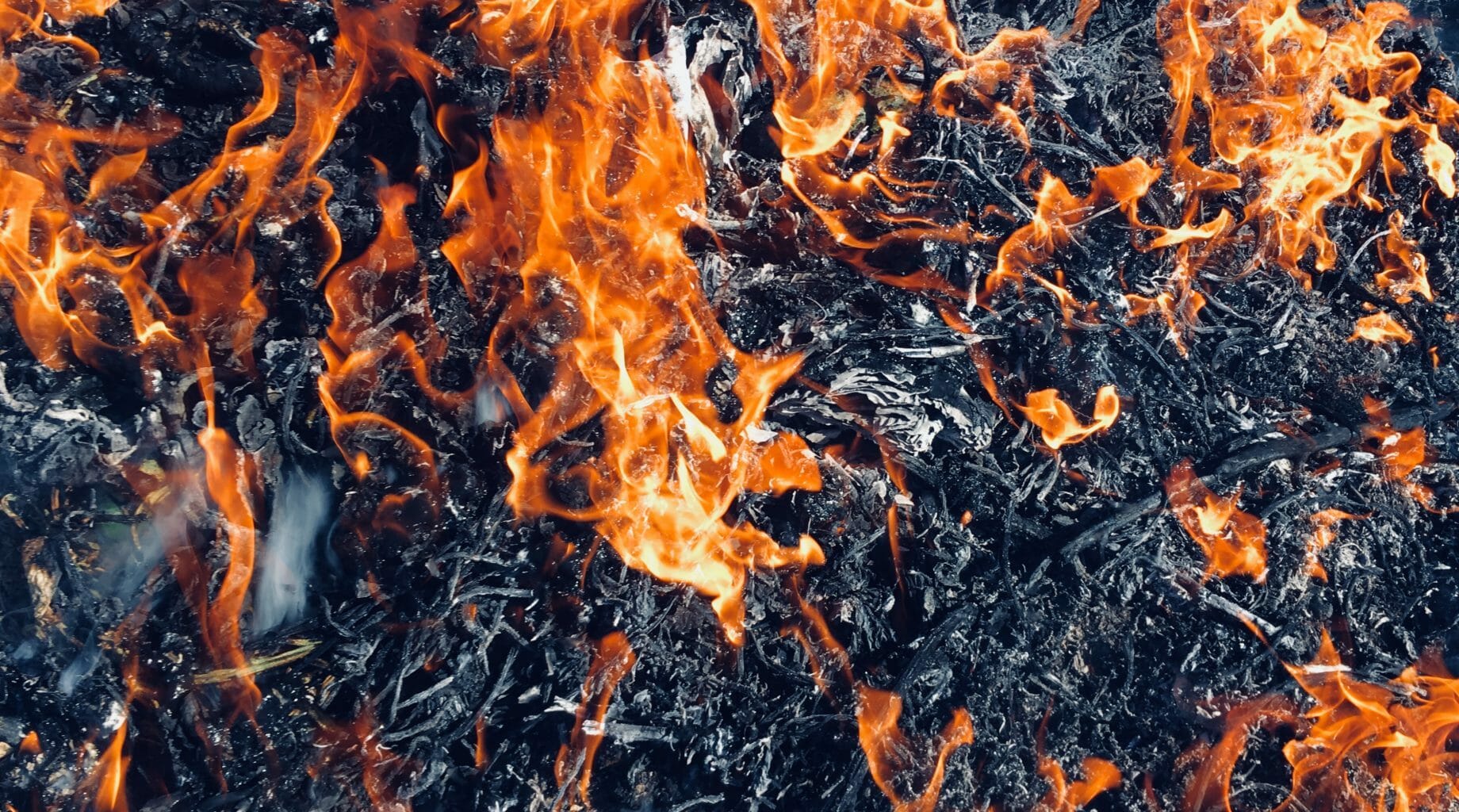Over 30,000 tonnes of waste put out every year for recycling in Scotland end up being burnt in incinerators and causing climate pollution, according to an investigation by The Ferret.
More than 12 per cent of waste collected for recycling by 17 councils is sent to energy-from-waste combustion plants. In Edinburgh the figure is 29 per cent, in West Lothian 27 per cent, in Glasgow 16 per cent and in Aberdeen 15 per cent.
Campaigners have attacked councils for “sending valuable resources up in smoke” and “harming recycling”. Experts cautioned that incineration could no longer be regarded as a “low-carbon” industry.
Councils pointed out that a proportion of the waste collected for recycling was contaminated by food, nappies, plastic wrappers and other items that couldn’t be recycled. It was better to convert this into energy than to dump in landfill sites, they argued.
Incinerating waste to produce energy has been booming in Scotland, with the annual amount of waste being burnt increasing more than sixfold between 2013 and 2019 to nearly half a million tonnes. That looks set to keep rising steeply, as there are now 11 new energy-from-waste plants being built or planned.
In the next few months waste company, Viridor, is due to apply for planning permission for a huge new plant near Stonehouse in South Lanarkshire. If it gets the go-ahead, it would burn up to 330,000 tonnes a year and become the largest waste incinerator in Scotland.
The incinerator boom has been driven by government attempts to prevent waste from being disposed as landfill. In 2019 the Scottish Government delayed a proposed landfill ban from 2021 to 2025, following concerns that councils would fail to meet the deadline.
But The Ferret reported in September 2020 that plans to treble the amount of waste burnt in incinerators could prevent Scotland from meeting its targets to increase recycling. Environmental groups were concerned that a large proportion of waste would be burnt rather than recycled.
Now figures from councils reveal that many have been sending significant proportions of waste they collect in recycling bins to combustion plants. For 17 of the most populated areas, it’s an average of one in every eight bins, amounting to well over 30,000 tonnes in 2019-20.
The highest was Edinburgh, which sent three-tenths of its recycling waste totalling 6,960 tonnes to be incinerated in 2019-20. The council helps run an energy-from-waste plant at Millerhill, near Musselburgh, which can handle up to 155,000 tonnes a year.
West Lothian sent more than a quarter of its waste collected for recycling – 5,061 tonnes – for incineration. The council said it went to plants in Latvia, Sweden, Denmark, Yorkshire, Lanarkshire and East Lothian.
In 2019-20 Glasgow sent 4,664 tonnes of recycling waste — 16 per cent — to Viridor’s waste treatment plant at Polmadie. There it was processed and burnt to produce electricity.
Aberdeen sent 4,025 tonnes — 15 per cent — to be burnt in plants in Scandinavia, England and Shetland. Several councils declined to say how many tonnes of waste collected for recycling were incinerated.
Dundee city council claimed that none of the waste it collected for recycling was incinerated. Three other councils said none of their waste was burnt: Falkirk, North Lanarkshire and Fife.
The recycling waste that ends up in incinerators
| Local authority | Waste collected for recycling burnt in 2019-20 |
|---|---|
| Edinburgh | 29.33% |
| West Lothian | 27.50% |
| North Ayrshire | 18.38% |
| West Dunbartonshire | 17.48% |
| Glasgow | 16.50% |
| Aberdeen City | 14.62% |
| Renfrewshire | 14.57% |
| Perth and Kinross | 11.92% |
| Scottish Borders | 11.00% |
| Aberdeenshire | 11.00% |
| Angus | 10.07% |
| Highland | 9.77% |
| Inverclyde | 8.31% |
| South Lanarkshire | 5.40% |
| Argyll and Bute | 3.93% |
| South Ayrshire | 3.42% |
| Stirling | 0.50% |
| Average | 12.57% |
Summary data on Scottish local authority incineration rates was released on social media after a UK-wide investigation by Channel Four’s Dispatches programme. The Ferret asked councils to say what was happening in their areas.
Friends of the Earth Scotland warned that incineration was spiralling out of control. “People will be appalled to find out that many councils across Scotland are sending the materials they put in their recycling bins to burn in incinerators instead,” said the environmental group’s campaigner, Sarah Moyes.
“There are serious environmental concerns around the burning of waste, but now councils are wasting valuable recyclable materials by burning them too. Instead the focus should be on reducing the waste we produce.”
Moyes called on councils to urgently address the contamination of recycling waste with better education, clearer labelling, and more consistent collections. “We need swift and decisive action to introduce a moratorium on the building of new incinerators before we lock ourselves into decades of sending valuable resources up in smoke,” she argued.

The UK Without Incineration Network has written to the Scottish Government insisting that incineration can’t be described as recycling energy. “Much of what is currently incinerated could and should have been recycled or composted,” said the network’s coordinator, Shlomo Dowen.
“It is important to ensure that the widest range of materials are accepted for recycling or composting, and that material is only disposed of if there is genuinely no way to recycle it.”
He added: “If Scotland is to fulfil its ambitions for a more circular economy then Scotland needs to stop building any new incineration capacity. If something cannot be recycled or composted it should no longer be sold.”
Dowen estimated that the waste burnt in five Scottish incinerators in 2019 released over 300,000 tonnes of carbon dioxide. The resulting climate disruption would cost society £21 million, he claimed.
Incinerators, unlike other climate polluters, have been omitted from a new post-Brexit trading scheme designed to cut carbon emissions. The omission, which was agreed by the Scottish and other UK governments, is currently being challenged by campaigners in the High Court in London.
We need to stop wasting our planet’s limited natural resources, either by burning or landfill.
Iain Gulland, Zero Waste Scotland
There is growing concern amongst experts about the carbon pollution from incinerators. “While energy from waste may have been ‘low carbon’ in previous decades when Scotland, and the UK, had a much more carbon intensive energy system, rapid and continuing decarbonisation has changed the equation,” said Iain Gulland, chief executive of the government-funded agency, Zero Waste Scotland.
“Energy recovery remains slightly preferable to landfill under current conditions, but this is highly sensitive to relatively small changes in waste composition, and ongoing grid decarbonisation will further weaken the case.”
He told The Ferret: “We need to stop wasting our planet’s limited natural resources, either by burning or landfill, and start living within our means.
“For now, incineration remains the least bad option for treating municipal solid waste currently practiced in Scotland. The challenge, as always, is to continually look to reduce waste as much as possible, recycle as much of what remains as possible, and treat the residual waste which is left in the manner with the lowest impacts.”

Professor Sir Ian Boyd, a former UK government scientific advisor from the University of St Andrews, thought it was inevitable that people would put the wrong material in recycling bins.
“Whether it is better to incinerate low grade waste materials or to dispose of them in other ways, such as putting them in landfill, will depend of the material and the quality of incinerators available,” he said.
“Wet organic waste could be used to generate methane for power generation. Other waste can be burned to directly generate heat. But because both these contribute to emissions they should be minimised and highly stable materials such as plastics may be better stored in landfill.”
The waste industry defended the role of incinerators in dealing with some waste. “It is simply wrong to imply that material collected for recycling is instead sent straight to energy-from-waste plants,” said Stephen Freeland, policy advisor to the industry body, Scottish Environmental Services Association.
“Contamination of material presented by householders in their recycling bin is a chronic problem and for some councils this can be in excess of the 12.5 per cent pointed to in the research. This is material that, despite all best efforts, simply cannot be recycled and for which an alternative treatment option must be found.”
He added: “The non-recyclable residues from sorting plants are often sent to energy-from-waste facilities, which provide the most practical and cost effective solution, and ensure that this material can still be put to good use by powering Scotland’s homes and businesses instead of being lost to landfill.”
The real issue here is not incineration but of wrong materials ending up in recycling bins.
Philip Bell, Aberdeen City Council
Local authorities confirmed that some of the waste collected for recycling ended up being burnt. But they argued this was the best way to treat waste contaminated with non-recyclable items.
“Decreasing the percentage of potentially recyclable waste sent to incineration is a priority for us,” said the City of Edinburgh Council’s environment vice-convener, councillor Karen Doran.
“We want to make sure that all items that are put in mixed recycling bins by our residents can end up being completely recycled. Education is extremely important to help people understand what should be disposed in green and communal recycling bins.”
The council pointed out that cardboard boxes contaminated by food, dirty plastics, food wrappers and plastic bags couldn’t be recycled. It was also difficult to recycle some plastic containers, such as black microwave trays.
West Lothian Council pointed out that it had one of the highest recycling rates in Scotland. “Unfortunately, a percentage of material presented for recycling is contaminated, which is usually caused by items such as liquids, foodstuffs and black bag waste being incorrectly put into recycling bins,” said a spokesperson.
“In these circumstances, the only alternative to landfill, which has the greatest negative impact on the environment, is energy-from-waste.”
Glasgow City Council accused Friends of the Earth Scotland of “mis-characterising” what happened to contaminated waste. “The materials city householders put in their bins are not sent to burn inside incinerators,” said a council spokesperson.
“Instead, any materials sent to become energy from waste are extensively reprocessed until they become a gas that is combusted in a controlled setting with any emissions fully in-line with standards.”
Aberdeen City Council argued that the amount of recycling waste sent to energy-from-waste plants needed to be put in context. “The real issue here is not incineration but of wrong materials ending up in recycling bins,” said the council’s environment spokesperson, councillor Philip Bell.
“Cities invariably suffer from slightly higher levels of contamination due to their more densely populated nature with higher proportion of householders using communal bins and a more transient population which make the challenge greater.”
The full responses from all councils contacted are available here.
Getting the band back together to fight new waste incinerator
Communities in South Lanarkshire are used to fighting off plans for big new waste incinerators. They’ve done it before.
In 2012 the Dovesdale Action Group won a battle to block the building of an energy-from-waste plant near Stonehouse. About 24,000 people wrote letters objecting to the plan.
But now, according to the group’s John Young, they are having to “get the band back together”. The waste company, Viridor, has come up with another proposal for an incinerator in the area that, if built, would be the biggest in Scotland.
The company is preparing to apply this summer to South Lanarkshire Council for planning permission to construct an “energy recovery facility” at Overwood near the M74. The plant will be designed to burn up to 330,000 tonnes of waste every year.
The Dovesdale Action Group is re-mobilising all its resources to try and stop it, and promises thousands of objections. “If we are to be seen worldwide as a leader in recycling, we should not be sweeping our waste under the carpet by burning valuable resources,” argued Young.
“We need to see a national moratorium urgently to assess the impact of incineration on our health, economy and climate change now.”
He argued that revelations about the impact of incinerators on “poor” recycling practices and climate change did not inspire confidence. “In effect we are burning resources, the cost of which is increasingly becoming apparent in costly local authority contracts,” he said.

The action group’s campaign has already been backed by a range of politicians. The SNP candidate for Hamilton, Larkhall and Stonehouse, Christina McKelvie, has called for “a national moratorium on new incinerators across our country”.
Màiri McAllan, the SNP candidate for neighbouring Clydesdale, also issued a statement saying that she was opposing the Overwood incinerator. The SNP election manifesto committed to “reviewing the role that incineration plays”.
The Scottish Greens’ manifesto promised to “oppose the construction of new incinerators”. Scottish Labour’s manifesto committed to a “moratorium” on “large-scale incineration”, while the party’s Clydesdale candidate, Claudia Beamish, said she would “fight hard to oppose the incinerator at Overwood”.
Viridor, however, saw things differently. The plant would convert “non-recyclable waste” into energy using a “modern, state-of-the-art process”, it told The Ferret.
The company pointed out that 1.43 million tonnes of household and other waste were sent to landfill in 2019. “This waste is otherwise known as non-recyclable waste and could therefore be managed at an energy recovery facility instead of landfill,” said a company spokesperson.
“The Scottish Government has put a ban on the landfilling of this type of waste by 2025. Therefore it is vitally important that alternative waste infrastructure such as energy recovery facilities are developed to ensure this can be achieved, with every tonne of waste diverted from landfill to energy recovery reducing carbon emissions.”
Viridor insisted it was playing a leading role in driving up recycling rates with facilities across the UK. “In 2019-20 Viridor diverted 5.5 million tonnes of waste from landfill and 2.6 million tonnes were recycled through its network of 16 material recycling facilities,” the spokesperson added.
“Energy was recovered from 2.9 million tonnes of non-recyclable waste by its fleet of 10 energy recovery facilities.”
In South Lanarkshire the company said it was carrying out “pre-application consultation with the local community and stakeholders”. Its planning application was “due to be submitted this summer”.
Viridor is also applying for a pollution permit from the Scottish Environment Protection Agency (Sepa). The permit would only be granted “if Sepa is satisfied that the operation of the facility will not result in unacceptable impacts upon local population and the environment,” the company said.
Cover image thanks to iStock/bargan921. This story was published in tandem with The Herald.














